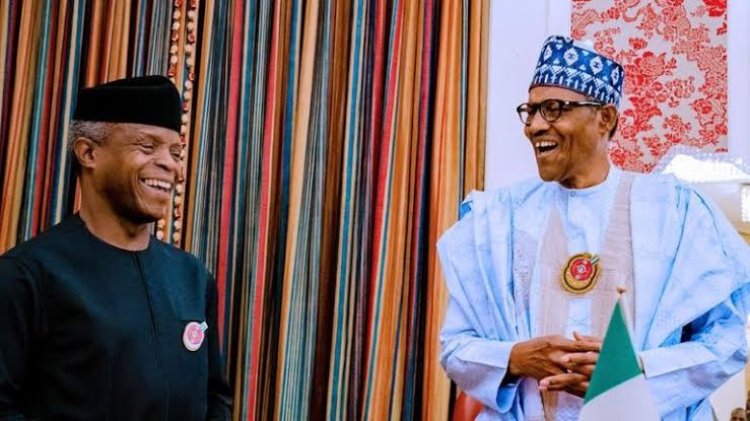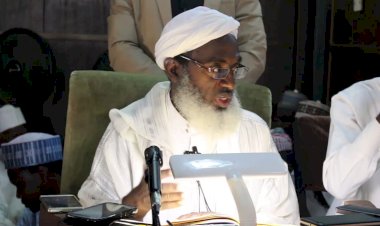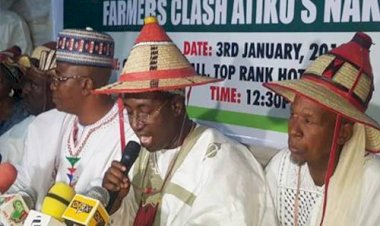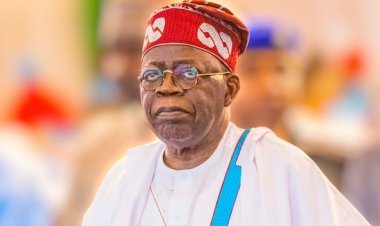Buhari Govt Spent N80bn On Medical Equipment — Osinbajo

Vice President Professor Yemi Osinbajo says the Federal Government has disbursed N80 billion to finance the acquisition and installation of critical medical equipment and expansion of production lines in some pharmaceutical companies.
Mr Osinbajo disclosed this while declaring open a 2-day Primary Health Care Summit 2022 on Thursday in Abuja.
The summit, with the theme, “Re-Imagining Primary Health Care in Nigeria,’’ is organised by the Federal Ministry of Health in collaboration with National Primary Health Care Development Agency.
The vice president said it had become imperative to appraise the key components of primary health care in the country.
“So this year, and today especially, as we mark the four decades of the anniversary of the Alma-Ata Declaration on primary health care, we should reflect on the state of primary healthcare in Nigeria; tracking progress in some of the key component of primary health care especially public education.
“The components are proper nutrition, clean water and sanitation, maternal and child health care, immunisation, local disease control, maternal and child health care, immunization, local disease control, accessible treatment and drug provision.
“We have heard already of the exceptional progress that has been made in the provision of some of these components, the Basic Healthcare Fund seeking to address cost of healthcare for the poor, the freshly designed primary health care facilities that have steady water supply, solar power, staff quarters, perimeter fencing, and now the keke NAPEP mini ambulances.
“Also the Federal Government of Nigeria’s COVID-19 response measures, including the health sector component of the Economic Sustainability Plan, the establishment of Healthcare Sector Intervention Fund Facility which disbursed somewhere in the order of N80 billion to finance the acquisition and installation of critical medical equipment and the expansion of production lines in some pharmaceutical companies.
“There are also the WASH initiatives especially the Clean Nigeria–Use the Toilet’ Campaign led by the Federal Ministry of Water Resources.
“The extensive work now being done by the National Council on Nutrition, and the National food systems dialogues and special initiatives on large scale food fortification such as the Food Processing and Nutrition Leadership (CEO) Forum led by Alhaji Aliko Dangote.’’
He said, however, that it was evident that far more needed to be done.
According to him, there are three critical trends of thought in re-imagining primary healthcare in Nigeria.
“First is dealing with out of pocket expenses by a compulsory health insurance where premiums for certain categories of vulnerable groups are paid by government.
“As the Minister of Finance has said, the target is 100 per cent coverage for the poor and vulnerable in the short to medium term.
“There is no way that healthcare funding can be paid for by government budgets alone; the second is addressing some of the drawbacks occasioned by the concurrent constitutional status of primary healthcare.
“There is a great need for synergy, to prevent the federal, states , local governments and private persons from duplicating primary health facilities; the third is encouraging and supporting serious private sector interventions.’’
According to him, two examples readily come to mind.
He said the first was the Adopt a Primary Health Facility Programme pioneered by Aigboje Aig-Imoukhuede’s ABC HEALTH in collaboration with the Private Sector Health Alliance of Nigeria, PSHAN, founded by Aliko Dangote, Jim Ovia and Aig-Imoukhuede.
Mr Osinbajo said the goal was to establish a chain of Primary Healthcare Centers (PHCs), across Nigeria’s 774 Local Government Areas and apply market-based reforms to provide low-cost health services at decent standards to the poor and vulnerable.
“The other is the EHA clinics operating mainly in Kano and Bauchi led by Dr Hananiya.
“Through its Reach programmes EHA has brought effective healthcare to over 11000 people, in Kano alone, the effort leverages on partnerships with non-governmental organisations and pharmaceutical companies to negotiate treatment prices and also trains community health extension workers to provide affordable primary healthcare services to people in the communities.
“Aside funds, what the private sector should bring to the task are models of efficiency and cost saving market driven ideas.
“On the 27th of January 2022, the president inaugurated the Health Care Reform Committee…a robustly constituted committee with representation from the states, healthcare related professional groups and associations, and medical academia.’’
He said that the primary objective was to reengineer the healthcare delivery system such that it became in the presidents words `people centric, modern and virile’’–a healthcare system that addressed the depressing health indices frontally.
Mr Osinbajo said he chaired the committee and expressed optimism on favourable results.
Notable speakers at the summit were Sultan of Sokoto, Muhammadu Abubakar, Faisal Shuaib, Executive Director, National Primary Health Care Development Agency and Minister of Finance, Budget and National Planning, Zainab Ahmed.
Minister of Health, Osagie Ehanire, Ekiti State Governor and Chairman of Nigeria Governors Forum, Kayode Fayemi, Aig-Imoukhuede, Chairman, Aig-Imoukhuede Foundation, among others also spoke at the event.
The highlight was the unveiling of five documents for re-imagining Primary Health Care in Nigeria.


















































